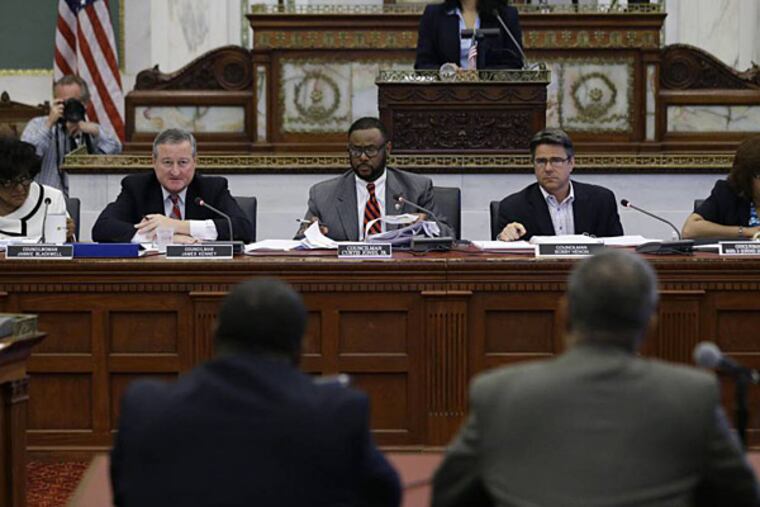Council members spar over community development regulations
Bill would place duty on developers to notify local residents of plans for their neighborhood.

SEVERAL MEMBERS of City Council are at odds over rules governing real-estate development in city neighborhoods.
Introduced by Councilman Bobby Henon, a bill made headway yesterday when it moved through the rules committee by a 6-2 vote. Henon said his bill relieves the burdens on locally based Registered Community Organizations (RCO) to notify neighbors of proposed land use.
"Seventy-five to 80 percent of the time, RCOs don't notify [residents], so it's shifting the burden from the RCOs over to the applicants," he said.
The legislation would establish new minimum qualifications for the RCOs, which were originally designed to improve communication between developers and residents having an interest in what's happening on their turf.
If passed, Henon's bill would require developers - or applicants - to notify residents within a 200-foot radius of proposed future development.
"We narrow down the RCO's boundaries to a local RCO or community group, directly impacted by the zoning use in their neighborhood," Henon said.
"I believe RCOs should be a locally recognized community organization, not citywide."
Challengers to the bill say it adds too much red tape to a process intended to be streamlined.
"This bill is bad - they even have in there that applicants who do development in the city only have to notify people within half a block," said Councilwoman Jannie Blackwell. "That's just not right. It's gotten smaller and smaller. We've never had a process like that in the history of the city."
Councilman Wilson Goode said he opposes the measure as well, calling it too "developer-driven."
"I simply believe that the bill changed so many times that it's a fight over who would have control over the process - the developers or the community. I am on the side of more-equitable development and more community involvement," he said.